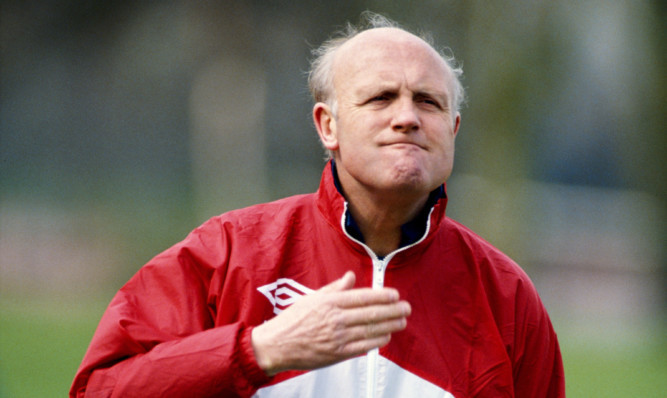Don Howe will be remembered as one of English football’s most respected coaches.
Howe, whose death was announced by the Football Association on Wednesday, made an impression on domestic and international football as a player, coach and manager, in more than 50 years in the game.
As a player, he represented West Brom and Arsenal. He made 379 appearances for Albion between 1952 and 1964, scoring 19 goals, before joining Arsenal for £42,000 in 1964.
He went on to play 74 times for the Gunners, netting once.
The Wolverhampton-born full-back also won 23 caps for England. The highlight of his international career came in 1958, when he started every England match at the World Cup in Sweden, and being part of a defence which drew 0-0 with eventual champions Brazil was a feather in one of those caps.
Although he suffered a broken leg in March 1966, that was not the end of his contribution to English football.
In fact, his impact on the game was just about to start.
Howe joined Arsenal’s coaching staff in 1967 and two years later became assistant to manager Bertie Mee, after a near four-year spell as manager at The Hawthorns.
He was a key part of Arsenal’s first-ever European success the 1970 Fairs Cup and a league and cup double followed the next year.
He coached Arsenal to successive FA Cup finals in 1978, 1979 and 1980 they won the trophy in 1979 and also helped them reach the European Cup Winners’ Cup final in 1980.
The departure of Terry Neill in 1983 led to Howe taking the role of caretaker manager which became permanent in 1984.
Debuts for the likes of David Rocastle, Martin Keown, Michael Thomas, Niall Quinn and Charlie Nicholas followed – and he revelled in his role developing the club’s youngsters when he had moved out of the hot-seat.
A spell as QPR manager followed from 1989 until 1991, before he became assistant manager to Terry Butcher at Coventry.
When Butcher was sacked, Howe took on another caretaking role.
Although he failed to make an impact as West Brom manager, in 2004 he was named him as one their 16 greatest players as part of their 125th anniversary celebrations. He also coached Leeds, and had a management role with Turkish giants Galatasaray.
Howe, who was 80, had been a key figure in the England backroom coaching teams of Ron Greenwood, Bobby Robson and Terry Venables.
And, he was part of one of the FA Cup’s greatest ever upsets. In 1988, Wimbledon defeated Liverpool to lift the trophy at a sunny Wembley. Howe was Dons boss Bobby Gould’s sidekick at that time.
The glowing tributes we are hearing are of someone who clearly made an impact on so many players who worked with him.
English football has lost someone who can be truly called “a football man.”
